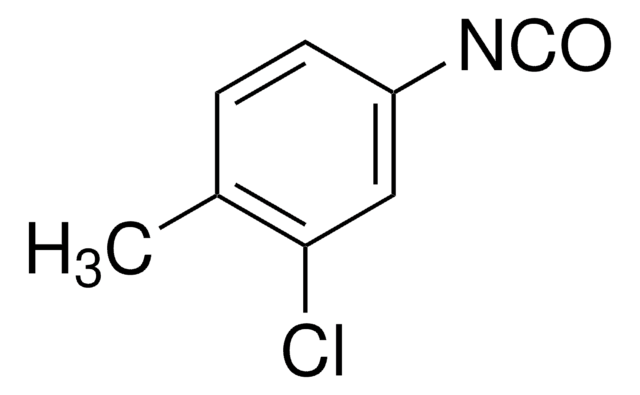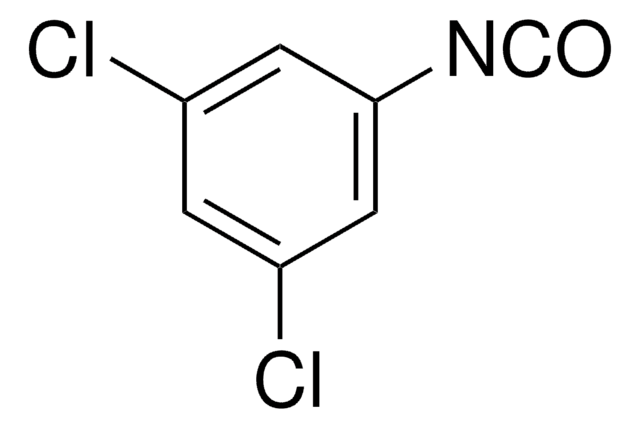About This Item
Recommended Products
vapor pressure
0.2 mmHg ( 20 °C)
Quality Level
Assay
97%
form
solid
bp
118-120 °C/18 mmHg (lit.)
mp
41-43 °C (lit.)
functional group
chloro
isocyanate
SMILES string
Clc1ccc(cc1Cl)N=C=O
InChI
1S/C7H3Cl2NO/c8-6-2-1-5(10-4-11)3-7(6)9/h1-3H
InChI key
MFUVCHZWGSJKEQ-UHFFFAOYSA-N
Looking for similar products? Visit Product Comparison Guide
Application
Signal Word
Danger
Hazard Statements
Precautionary Statements
Hazard Classifications
Acute Tox. 2 Inhalation - Acute Tox. 3 Oral - Aquatic Acute 1 - Aquatic Chronic 1 - Eye Dam. 1 - Resp. Sens. 1 - Skin Sens. 1A - STOT SE 3
Target Organs
Respiratory system
Storage Class Code
6.1A - Combustible acute toxic Cat. 1 and 2 / very toxic hazardous materials
WGK
WGK 3
Flash Point(F)
253.4 °F - closed cup
Flash Point(C)
123 °C - closed cup
Personal Protective Equipment
Choose from one of the most recent versions:
Already Own This Product?
Find documentation for the products that you have recently purchased in the Document Library.
Our team of scientists has experience in all areas of research including Life Science, Material Science, Chemical Synthesis, Chromatography, Analytical and many others.
Contact Technical Service












